In a small way Robert Scott was the nightmare of Jane Austen’s Sir Walter Elliot made flesh, the Napoleonic War carpetbagger come good. It is not clear how close an interest he ever took in his brewery, but while it was certainly enough to lead to quarrels with his brother, he had other ambitions for his children, sending four of his five sons into the army or navy, and leaving only the youngest, John Edward – Robert Falcon Scott’s father – to maintain an increasingly distasteful connection with trade.
If the brewery had ever made very much money, it had ceased to do so by the time of Robert’s death, and Scott’s father was left with the tastes of a gentleman and very little on which to support them. The death of Robert also led to a protracted family challenge over the ownership of Outlands, and in 1862 John played the only card available to a man spoiled for business and useless for much else, and married a Hannah Cuming, the twenty-one-year-old daughter of a prominent figure in the Plymouth insurance and maritime world.
John and Hannah Scott had six children who survived infancy – Ettie, Rose, Robert Falcon (always known as ‘Con’), Grace, Archie and Katherine – and it is in their memories that this marriage and Outlands life most vividly survive. ‘Mr Scott girded against the enforced restriction of a business life which was uncongenial to his tastes,’ wrote George Seaver, the last biographical link, through Con’s sister Grace, with that generation of the Scott family, ‘and although he interested himself in local affairs in Devonport where he was magistrate and Chairman of the Conservative Association, these pursuits provided no adequate outlet for a man of his capability … Lack of means, lack of health, and lack of opportunity bred in him a baleful sense of inferiority, the result of inhibitions, which gave rise to the most explosive temper – by no means improved by the periodical visits of his brothers, who stirred his envy by their accounts of thrilling adventures in foreign fields.’
It is hard to know how just this is, or how much it reflects the resentment of a daughter who always had to take second place to her two brothers. The few surviving letters from Con’s early days certainly suggest an affectionate and easy-going relationship between father and son, but a letter written in a tent in Antarctica just before his death conjures up the John Scott of Grace’s memory. ‘The inherited vice from my side of the family is indolence,’ Scott warned his wife about their own son; ‘above all he must guard, and you must guard him against that. I had to force myself into being strenuous as you know – had always an inclination to be idle. My father was idle and it brought much trouble.’
Side by side in photographs, Scott’s parents certainly look an oddly suited pair, John Scott bearded, irresolute, almost characterless, his wife Hannah refined, intelligent, discriminating and kindly formidable. It seems unlikely that the Cuming family ever let John Scott forget that it was their money that had kept Outlands in the family, and it was Hannah who ruled, and her brand of genteel, slightly compromised, mid-Victorian Evangelicalism that set the moral tone of the household. ‘Whatever we have cause to bless ourselves for, comes from you,’ her devoted elder son would later write to her at a moment of family tragedy. ‘If ever children had cause to worship their mother, we feel we have, dear … you can never be a burden, but only the bond that keeps us closer together, – the fine example that will guide us all … What is left for you to do is to be the same sweet kind mother that you have always been, our guide and our friend.’
Not that there was anything gloomily oppressive about her influence – their Plymouth Brethren cousins thought the Outlands Scotts ‘damned’ – and the children grew up to a normal, uncomplicated life. ‘As children we were always very happy and ordinary and simple,’ Grace recalled in a bucolic memoir of their Outlands childhood, ‘and though we had a comfortable house and a nice biggish garden there was no money for travel or even simple excitements. As a matter of fact, we did not want them or think about them, for we were brought up a much quieter generation … Our great yearly treat to look forward to was a visit to the Pantomime at the Plymouth Theatre! Though the house was small for such a crowd – seventeen persons when the boys were at home – thanks to the garden, fields, and outhouses, during the day-time we could disperse. We had entire liberty within these bounds which excluded a blacksmith’s forge just outside the shrubbery gate, and a small general shop – good for boiled sweets. I may say that to get the sweets we had to climb a high gate, which was kept locked to keep us from temptation, and failed.’
Robert Falcon Scott was born into this modest Victorian idyll on 6 June 1868, and first ‘enters history’, as J.M. Barrie, his most influential and unscrupulous mythologiser, put it, ‘aged six, blue eyed, long haired, inexpressibly slight and in velveteen, being held out at arm’s length by a servant and dripping horribly, like a half drowned kitten. This is the earliest recollection of him of a sister, who was too young to join a children’s party on that fatal day. But Con, as he was always called, had intimated to her that from her window she would be able to see him taking a noble lead in the festivities in the garden, and she looked; and that is what she saw. He had been showing his guests how superbly he could jump the leat, and had fallen into it.’
This probably says more about the author of Peter Pan than it does about Scott, but if it is hard to see how a nation could swallow it, it does highlight the problem of everything to do with Scott’s youth. There is no reason to imagine that anyone would invent Barrie’s anecdotes for him, but they belong to the world of medieval apocrypha rather than biography, exemplary tales chosen to illustrate either latent greatness or the triumph of will over the sickly, dreamy, introspective, ‘pigeon-chested’, slovenly ‘Old Mooney’ of Barrie-inspired legend.
There is no evidence that Scott was any weaker-chested than many another child, or any ‘dreamier’, but the anecdotes flow with the same dire mix of saccharin charm and cautionary humour – the stream, the ‘ocean’ that only adults could call a pond, the holly tree, the dangers of the glass conservatory, the much-loved pony, Beppo, who would throw any other rider. ‘His first knife is a great event in the life of a boy,’ wrote Barrie, ‘and he is nearly always given it on condition that he keeps it shut. So it was with Con, and a few minutes after he had sworn not to open it he was begging for permission to use it on a tempting sapling. “Very well,” his father said grimly, “but remember, if you hurt yourself, don’t expect any sympathy from me.” The knife was opened, and to cut himself rather badly proved as easy as falling into the leat. The father, however, had not noticed, and the boy put his bleeding hand into his pocket and walked on unconcernedly. This is a good story of a child of seven who all his life suffered extreme nausea from the sight of blood; even in the Discovery days, to get accustomed to “seeing red” he had to force himself to watch Dr. Wilson skinning his specimens.’
For all of Barrie’s efforts to press it into significance, it is the utter normality of Scott’s childhood that is most striking. In later life he, Archie and his oldest sister Ettie would always form a kind of distinctive triumvirate within family councils, but as children they all mucked in together, left pretty much to their own devices by a father busy pottering about his gardens and a mother nursing her ailing parents. ‘Our tastes for sailing were very much encouraged by my uncle Harry, my mother’s brother,’ Grace remembered. ‘On holidays we, that is four girls and two brothers, had glorious days sailing about Plymouth Harbour in an eighteen foot boat with a big lug sail. We were taught to work the boat and had thrilling days out by the Mewstone (the parental limit seawards), or up one of the rivers, where we had been known to be stranded in the mud for hours on a falling tide. Considering our lives were so very sheltered then, so small and bounded, it seemed wonderful to have our sailing freedom.’
Читать дальше
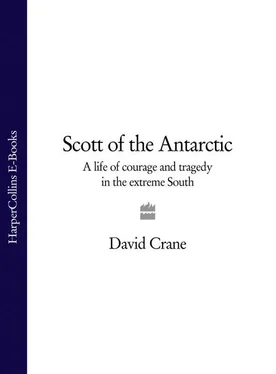


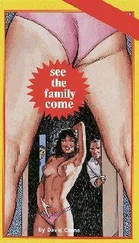
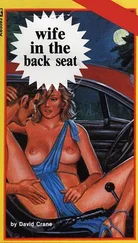
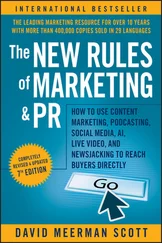
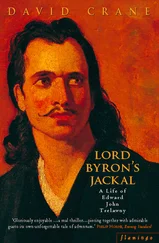





![John Bruce - The Lettsomian Lectures on Diseases and Disorders of the Heart and Arteries in Middle and Advanced Life [1900-1901]](/books/749387/john-bruce-the-lettsomian-lectures-on-diseases-and-disorders-of-the-heart-and-arteries-in-middle-and-advanced-life-1900-1901-thumb.webp)